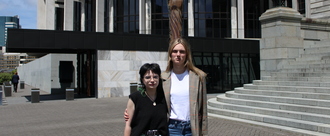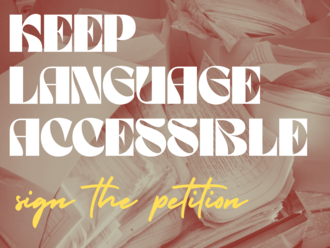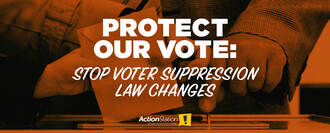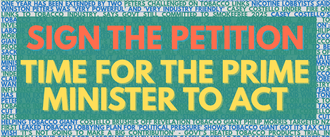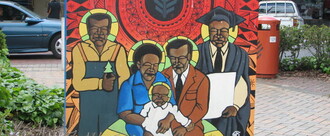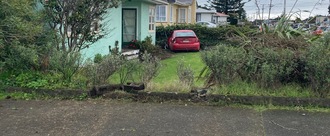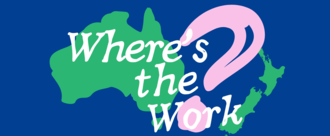-
Reverse the decision to deny transgender and takatāpui young people access to puberty blockersDear Minister Simeon Brown We write to you as transgender and takatāpui young people of Aotearoa New Zealand to ask you to reconsider your decision to ban the use of puberty blockers (gonadotropin-releasing hormone analogues) by transgender young people. To be transgender or takatāpui is a taonga. To deny our young people access to life-saving medication on the basis of an imported culture war is cruel and abhorrent. Trans young people are some of our most at-risk youth. Not because of who they are, but because of how our society treats them for something they have no control over. Denying our rangatahi an effective medication that gives them the time to discover who they are is needlessly cruel. According to Counting Ourselves 2022, 77% of trans people experience high or very high psychological distress, compared to just 12% of the general population. When compared to the fact that 95% of trans youth have a positive impact on their mental health from the use of puberty blockers, how could such a vital medical intervention be ignored? This decision is an infringement on human rights and medical autonomy, as stated by Te Kāhui Tika Tangata The Human Rights Commission. Denying access to essential healthcare for trans and takatāpui youth is going to cause unnecessary harm and distress to not just young people but to their whanau as well. The fact that it is only our gender diverse youth that are denied this care, and not the general population, is clear discrimination designed to target our most vulnerable. We urge you to reconsider your decision and put our young people’s health ahead of politics. Sincerely Lauren Craig & Ngahuru Autumn Brown9,364 of 10,000 SignaturesCreated by Lauren Craig & Ngahuru Brown
-
Stop the repeal of the Plain Language Act 2022Aotearoa should be a place where people are encouraged and supported by their government to engage in democratic processes. Where usage of plain language in documents is encouraged, and people have the ability to understand their rights within seconds no matter where they come from or what their background is. Right now our government has chosen to treat accessible language differently to other equitable measures by excluding Plain Language from their budget. Although plain language is a less tangible concept, the importance of it to people across Aotearoa is no less vital than having wheelchair ramps in public buildings, or sign language interpreters during emergency broadcasts. Simple, easy to read language helps our more vulnerable groups in Aotearoa to receive fair treatment in all sectors of government. Over 1.3 million adult New Zealanders have low literacy/numeracy skills, with Māori and Pacific peoples significantly overrepresented in this group. This leads to higher barriers in employment, health, income, and civic engagement for these communities[1]. Furthermore, up to 10% of New Zealanders have communication issues, including difficulties that directly affect reading, writing, or understanding official information. There are also more than 11,530 children with swallowing difficulties, 95,000 people with autism, and 60,000 children with auditory processing disorder, all conditions that can impact effective engagement with complex or non-plain language content[2]. Plain language is also a vital tool for older generations, many of whom are navigating digital systems and filling out important forms independently, often without someone to assist them. Keeping Plain Language requirements in legislation means everyone is considered when the government publishes information. By taking it away, the government is forgetting why it was put into place: to keep all of us in the loop. No one should have to spend hours filling out and decoding benefit forms, immigration forms, justice information, or health information. The budget we pay for should work for us, too. Now is the time for us to take action that will protect our most marginalised brothers and sisters. Action that allows for everyone to be part of the conversation, and puts equitable care at the heart of our government's services. References: 1. An Empirical Portrait of New Zealand Adults Living With Low Literacy and Numeracy Skills. AUT NZ Pathways Research Institute. 2022: https://nzpri.aut.ac.nz/__data/assets/pdf_file/0008/522827/An-empirical-portrait-of-New-Zealand-adults-living-with-low-literacy-and-numeracy-skills_report.pdf 2. Communication and Swallowing Disabilities in New Zealand: Data Fact Sheet 2023. Speech-language Therapists New Zealand. 2023: https://speechtherapy.org.nz/assets/Uploads/SLT-Business-Case-2024/Communication-and-Swallowing-Disabilities-in-New-Zealand-Data-Fact-Sheet.pdf?vid=41,912 of 2,000 SignaturesCreated by Connie Bachle
-
Protect Our Vote: Stop Voter SuppressionMost people in Aotearoa, no matter our background, income or postcode, value fairness and freedom. The freedom to have a say in decisions that impact our lives — from making housing more affordable, to creating jobs to making health care decent. We want everyone to have the freedom to vote as we know for our democracy to work for all of us, it must include all of us. We are proud to have been the first democracy where women could vote. But right now, the Government is pushing through changes to the Electoral Act that will make it harder for many people to vote—especially those already underrepresented in our political system. These proposed changes include: • Scrapping same-day enrolment and voting on Election Day, a clearly effective measure for increasing turnout - used by over 80,000 people in the last election. • Requiring strict forms of ID to vote, which puts unnecessary and expensive barriers up particularly for those on low incomes or experiencing homelessness. • Shortening the voter enrollment deadline by a full week, which will target people with busy lives or housing instability. • Banning all incarcerated people from enrolling and voting in our general election. • Banning the distribution of free food and drinks near polling places, which has long been a simple, welcoming way to support voter turnout, and has the potential to impact marae specifically. Even the Government’s own Attorney-General Judith Collins has warned these changes breach the Bill of Rights and risk silencing tens of thousands of voters. She found that the reforms would likely be inconsistent with the right to vote and lacked sufficient justification[1]. At the same time, the Prime Minister has publicly admitted he does not know the details of his own government’s proposals[2]. This is unacceptable when our fundamental democratic rights are on the line. Voters pick our leaders -- leaders do not get to pick and choose their voters. Let’s be clear: this is voter suppression—and it mirrors what far-right governments around the world are doing to consolidate power by discouraging democratic participation. During their term, this Government has routinely bypassed democratic processes. In just its first 17 weeks, it passed 14 laws under urgency—without full public consultation or proper scrutiny. That’s more than many previous governments managed across an entire term[3]. If we let these electoral law changes go ahead, we risk silencing over a hundred thousand voters[4] at the next election —and setting a dangerous precedent. We call on the Government to immediately: • Stop all changes that limit or restrict the ability of people to enrol or vote. • Retain same-day enrolment and voting on Election Day. • Reject strict voter ID laws that disproportionately impact Māori, young people, disabled voters, and others and will suppress voter turnout. • Allow food and drink near polling places as a basic gesture of hospitality, tikanga Māori and community support. • Commit to transparent, robust public consultation before any electoral law changes are made. • Explore and commit to removing other barriers currently preventing people from voting. For our democracy to work for all of us, it must include all of us. We need our leaders to be removing barriers stopping people voting, not creating new ones. References: 1. Attorney-General rules her own govt’s voting crackdown breaches human rights — Newsroom, 28 July 2025 2. Christopher Luxon defends voting changes after Judith Collins raises problems — RNZ, 27 July 2025 3. Urgency under scrutiny as pay equity changes rushed through — 1News, 11 May 2025 4. New Zealand attorney general warns her government’s electoral reform could breach human rights law — The Guardian, 28 July 202510,481 of 15,000 SignaturesCreated by Grace Newton
-
Demand the Prime Minister strip the tobacco and vaping portfolio from NZ FirstAs a coalition of health organisations and advocacy groups, we are calling on the Prime Minister Luxon: strip the tobacco and vaping portfolio from New Zealand First. It's the responsibility of leaders in government to make informed decisions that have long-term benefits for the future of the country and the health of its people. They should use the best knowledge, information and expertise available to guide their decisions to ensure all people and communities can thrive. That is not happening right now. Keeping the tobacco industry away from influencing Government decisions and actions is crucial to protecting people’s health and wellbeing. Our Government appear not to be prioritising saving lives and protecting people from harmful industries who have caused so much death and destruction in their pursuit of profits. If action isn’t taken now, more decisions will continue to be made behind closed doors that are influenced by the tobacco and vape industry which benefits their interests. The health of people across Aotearoa is under threat if the PM doesn’t take some action to change how health decisions are being made and who is responsible for that decision making. We are calling for PM Christopher Luxon to take a strong stance and protect the health of all people in Aotearoa. Sign this petition to show your support! References: [1] Alleged ties between NZ First and vaping companies a 'dangerous risk' to New Zealanders, anti-vape group warns | RNZ News733 of 800 SignaturesCreated by Vape-Free Kids NZ

-
Kāinga Ora: Don't roll back on Rangitata homesNo matter who we are, or where we come from, people across Aotearoa deserve somewhere safe and dignified to call home. As house prices sky rocket, Aotearoa is plunged deeper into the housing crisis created by this Government, Kāinga Ora have rolled back their commitment to deliver social housing in Rangitata.[1] These homes are desperately needed for our most vulnerable citizens - more and more of whom are forced into rough sleeping as they're priced out of the private rental market and emergency housing options are stripped away. Our construction sector also needs the work it will bring in; over the past year we've lost close to a thousand local jobs with the closing of Alliance Smithfield and the loss of the Antarctica contract as examples, and the recession making times rougher across the board for everyone. We’re calling on you as our representative to ensure Kāinga Ora stays true to their commitment to the Grey Road/Arthur Street development, and to show up for your constituents when it matters not just at campaign time. References: [1] Kāinga Ora cans hundreds of social housing building projects after review, takes up to $180m hit - NZ Herald28 of 100 SignaturesCreated by Jacqui Giles
-
Keep Tokoroa Toi Ohomai OPENNo matter where we live in Aotearoa our communities need access to essential services, education and opportunities to grow and thrive. That includes Tokoroa and other small regional communities throughout the South Waikato. But as a result of this Government’s decisions Tokoroa’s Toi Ohomai campus is facing closure. The Toi Ohomai Institute of Technology has published a proposal to cut over 160 jobs which would lead to the purpose built campus in Tokoroa being closed. Toi Ohomai has said the proposal was in response to a Government expectation to become “financially viable”. Tokoroa has already faced the devastating blow of Kinleith Mill shutting down one of its plants with 150 people losing their jobs. Families have had to reevaluate their lives in the South Waikato, with many deciding to move out of the district for more job opportunities. Some have decided to stay, looking into retraining at Toi Ohomai or seeking employment in other areas in the district. The Toi Ohomai campus in Tokoroa is a beacon of light for those who otherwise wouldn't have the means to travel to continue tertiary education in Rotorua, Tauranga or Hamilton. The campus and its courses are an asset to all ages, from young high school graduates to adult learners looking to upskill or retrain. With new housing developments and the Maraetai Road Business Park build, there is a light at the end of the economic recovery tunnel for Tokoroa and the wider South Waikato. If Toi Ohomai remains open in Tokoroa, it has the potential to become a significant economic catalyst for local businesses and the recruitment and retention of young people in the district. If we lose Toi Ohomai in Tokoroa, opportunities for locals will once again become extremely limited and the wider community will be left with the burden to fill the gaps. To creatively and collaboratively invest in our local community and allow time for possibilities to flourish is to contribute to the growth and vibrancy of the South Waikato and provide hope to future generations. "Patience is bitter, but its fruit is sweet". Sign this petition to signal to Toi Ohomai and the government that the Tokoroa community deserves better and will not stand by as our opportunities for youth and future generations are shortsightedly taken away. Let’s show Toi Ohomai leadership that the Tokoroa campus is a valued asset in the community and it must stay open.246 of 300 SignaturesCreated by Elvisa Van Der Leden
-
Petition: Urgent Safety Improvements for Morgan St–Cornfoot St–Short St IntersectionNZTA data confirms this is a high-risk intersection, with the greatest number of crashes occurring on Cornfoot Street heading from town toward Castlecliff. However, crashes have occurred in both directions, as well as on Morgan Street. Excessive speeds and poor road design continue to pose a serious hazard.235 of 300 SignaturesCreated by Jamie Ryan
-
PM Luxon: Uphold Codes of Conduct - Call David Seymour into lineResponsible leaders welcome advice from experts when they are creating laws and policies. They know good decision making means planning for the long term, considering diverse points of view and making evidence based decisions. This is also key to a healthy democracy. Which is why Deputy Prime Minister David Seymour’s targeting and harassment of people in academics and officials is so concerning. The Prime Minister has the responsibility to ensure the conduct of Ministers of the Cabinet is fitting of their office and inline with the Cabinet Manual. The Deputy Prime Minister’s deliberate targeting of academics and the exposure of Christchurch Council staff to ridicule by comparing them to Russian President Vladimir Putin, following their opinions on the Regulatory Standards Bill, appears to be a direct breach of the Cabinet Manual’s standards of conduct. It’s a blatant attempt to stifle academic freedom and any dissenting opinion. For the Deputy Prime Minister David Seymour to lead this online harassment campaign is concerning, as such actions could incite behaviour that spills into real-world violence. This is irresponsible and a clear breach of public trust. We expect our leaders to keep us safe, not throw us into harm’s way. Such behaviour by the Deputy Prime Minister compromises the safety and wellbeing of the targeted individuals and sets a dangerous precedent for how dissenting voices in our society are treated. It also breaches sections 2.53 and 2.56 of the Cabinet Manual. As Prime Minister and Head of the Cabinet, we urge you to immediately investigate this matter and address this serious breach of the Cabinet Manual. We expect our officials to display the highest standards of conduct and ensure that all members of our community can contribute to public debate without fear of harassment or intimidation. An official letter to this effect has already been sent to Luxon - sign this petition if you want to add your power behind the call!30,219 of 35,000 Signatures
-
Keep Aotearoa Incinerator Free!Why we want Aotearoa to stay incinerator-free Incinerators are a serious health hazard Incinerators release highly toxic dioxins, heavy metals, and PFAS, among other pollutants. These are some of the most toxic substances known to science, and can cause things like cancer, damage to the nervous system and organs, birth defects and infertility! Would you want to be breathing, drinking and eating this stuff? Incinerators still need landfills Incinerators do not stop the need for landfills. The ash, which can be as much as a third of the total amount of rubbish that went in, has to be landfilled and handled as hazardous waste. Along with that, some stuff simply can't be burnt ever because of its toxicity, or because the material simply isn’t burnable. Incinerators are an economic loser The hype around incinerators suggests they will provide lots of jobs and economic benefits to the communities they are built in. But, for every job an incinerator provides, activities that actually stop the waste before it’s created - like recycling, composting, reuse and repair - provide hundreds more jobs and local economic activity. Incinerators pollute air, land and water Even the most sophisticated modern incinerators release harmful substances out of their chimneys and into the ash and wastewater, leaving a toxic legacy for those spaces and ecosystems for generations to come. The toxic ash has to go somewhere - mostly to a specialised landfill, where the pollutants can leach out. Incinerators are a disaster for the climate In 2024 the BBC found that incineration is just as bad for the climate as coal power, and five times more polluting than the average unit of UK energy. New Zealand reports have also found that incinerators will spew out far more carbon than landfills, especially as more organic waste gets composted instead of landfilled to meet New Zealand’s methane reduction targets. Incinerators keep the waste train going Incinerators need 20 to 30 years of burning as much rubbish as they possibly can to justify the hundreds of millions of dollars needed to build and run them. Imagine if all that money was invested in smart zero waste projects instead? What a waste! Would you want a dirty incinerator in your community? For a future where the earth's resources are valued, where people have opportunities to do meaningful zero waste work, and where we know our air, water, soils and food is safe… Let's Keep Aotearoa Incinerator Free! FAQ Should we follow Europe’s example? Europe’s incinerators are not what they’re cracked up to be, and are fast becoming yesterday’s technology. These days Europe is retreating from burning rubbish because it is harming their climate and waste reduction, reuse and recycling goals. For example, Denmark has invested heavily in incinerators but now generates more waste per capita than any other country in Europe. They recently announced a plan to close down 30% of the country's incinerators in order to get their greenhouse gas emissions and waste generation under control. Wales and Scotland have also banned any new incinerators being built, and England is considering it too. And the EU no longer considers incinerators eligible for climate-friendly investment. What about technologies with fancy names like pyrolysis and gasification? Despite all the hype, these technologies have a horrendous track record of failure across Europe and elsewhere. They might be OK for clean, organic materials like forestry slash, but add anything else and they create toxins as bad or worse than incinerators. Aren’t incinerators generating much needed power? While companies like to sell these technologies as ‘waste to energy’, they not only produce dirty, non-renewable energy, but they are extremely inefficient. A study from 2023 found that European incinerators are only able to capture a small proportion of the energy they burn - roughly 25% at best, compared to around 35% for coal power, and 55% for natural gas. Zero waste - is it really achievable? Absolutely! Zero waste is not just about the literal goal of achieving ‘zero’; it's as much a practical toolkit and guidebook to drastically reducing waste across our communities starting with preventing the creation of waste in the first place. It is well-established, with an extensive evidence-base and a huge range of real life options already being implemented in communities all over the world right now. Check out the mahi of groups like Para Kore, Zero Waste Aotearoa, Zero Waste Europe, and GAIA for some inspiration!523 of 600 SignaturesCreated by Zero Waste Aotearoa
-
A CALL TO THE ALL BLACKS: You perform haka, will you stand up for it?This is about the integrity of our culture, our right to protest, and the deep contradiction in how Māori identity is celebrated when it’s convenient, but suppressed when it’s powerful. If I were explaining it to a friend, I’d say: Bro, imagine our people being stood down in Parliament for doing haka, a sacred expression of who we are; during a time where it really counted!. Meanwhile, the All Blacks perform haka on the world stage, being celebrated and paid for it, that’s the same haka, that’s the same tikanga. It hurts because it shows our culture is only palatable when it entertains, not when it resists, and if we don’t call that out, we’re letting the world think it’s okay to separate Māori culture from Māori struggle. I care because haka is not just a performance, it’s protest, it’s whakapapa, it’s survival, it's Māori. If we let it be used without context or conscience, we’re letting go of something sacred, I’m not okay with that. It hurts my heart as a Māori to hear the silence from the All Blacks, they have a responsibility under Te Tiriti o Waitangi and as kaihaka to use their privilege and speak up.111 of 200 SignaturesCreated by Jahvaya Wheki
-
Properly staff and resource our HospitalsAotearoa should be a place where people who are in need can access hospitals and get timely treatment, where staff are supported and properly resourced to give quality care. We have the opportunity to ensure that the most medically vulnerable people in our communities are properly supported through their journeys to improved health and wellbeing. New Zealand is facing a health crisis. People are suffering, and some are dying, because they can't access the treatment they need. Our hospitals need to be rebuilt, better resourced and better staffed. New Zealanders deserve a healthcare system that doesn't leave them waiting for months or years just to get the treatment they need; and medical professionals deserve to work in an environment that enables them to deliver the care their patients need and deserve. “We have over a thousand patients that are waiting for either a first specialist appointment or a follow-up appointment. I've never seen that number of patients waiting to be seen." — Dr. Claudia Hays, head of the Obstetrics and Gynaecology Department at Nelson Marlborough Health [1] “Certainly I have seen patients that I believe their disease has gone from curable to incurable during that waiting time." — Dr Suzanne Beuker, senior doctor and consultant for the Urology Department at Nelson Marlborough Health [1] “Someone put my life at risk by changing my diagnosis. This could’ve damn near killed me.” — Daniel Walker, Nelson patient whose nine-week wait likely increased the spread of his testicular cancer [2] The Government needs to build facilities that are fit for purpose for our aging and growing population. Despite the growing crisis, there is a lack of action. We need a bipartisan approach to healthcare that resolves these issues once and for all. The public needs transparency, information and engagement regarding investigations and reports on these issues; and in particular the independent investigation at Nelson Hospital. Sign this petition and together we can hold the government to account and make sure our hospitals are resourced enough to help our family and friends in need.421 of 500 SignaturesCreated by daniel walker
-
Where's the Work?The Where’s the Work? campaign highlights the growing urgency for increased local job availability and accessibility, both during and after studying. While there may be work out there, it is often unsuitable or out of reach for students managing demanding study schedules and financial pressures. Students need flexible, fairly paid employment that complements — not competes with — their education. These roles are crucial to sustaining themselves while pursuing their degrees and, critically, retaining & growing the tertiary-educated workforce. VUWSA believes that if Aotearoa is serious about retaining its talent and revitalizing its communities, then we must invest in our young people — not only with education, but with real pathways to employment. Where’s the Work? is a campaign grounded in the belief that when students succeed, we all benefit. The campaign also aims to champion the mutual value of stronger partnerships between local businesses and students. Students bring fresh ideas, innovation, and energy to the workforce. In turn, they gain practical skills, income, and a sense of belonging in the communities they live and study in. By fostering a reciprocal relationship between students and employers, we’re not just supporting individuals — we’re enriching our city’s social and economic fabric. This is a call for employers, policymakers, and universities to step up — to support tauira in tangible ways, to value their contribution, and to build a future where they don’t just survive here but thrive here.867 of 1,000 SignaturesCreated by Engagement Vice-President

